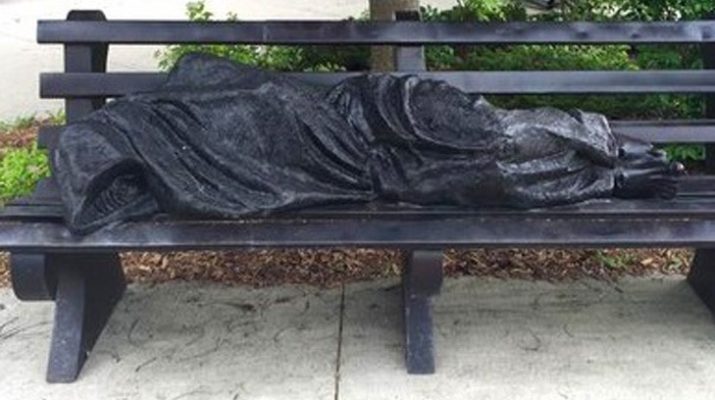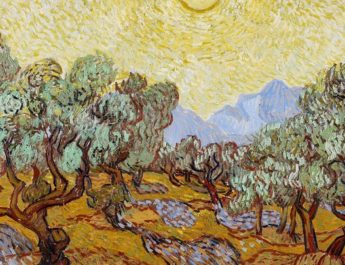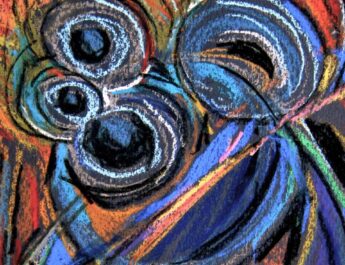Luke 9:51-62
Ordinary C31
51 AWhen the days drew nearB for him to be taken up,C
A {untranslated = ginomai. This is to come into being, to happen, become, be born. It can be to emerge from one state or condition to another or is coming into being with the sense of movement or growth.
B “drew near” = sumpleroo. 3x in NT. From sun (with, together with) + pleroo (to fill, make full or complete; properly, filling something up to the maximum extent or induvial capacity; used figuratively for furnish, influence, satisfy, finish, preach, perfect, and fulfill); {from pleres (to be full, complete, abounding in, occupied with)}. This is to fill entirely, a boat swamped with water, or fulfill. It can also be come or approach.
C “taken up” = analempsis. 1x in NT. From analambano (to raise, receive, pick up, lead away); {from ana (up, back, among, again, anew) + lambano (active acceptance/taking of what is available or what has been offered; emphasizes the choice and action of the individual)}. This is a lifting up or ascension.
he setD his faceE to goF to Jerusalem.G
D “set” = sterizo. 13x in NT. From sterigx (a support, plant down); perhaps from histemi (to stand, place, set up, establish, stand firm). This is to make fast, support, strengthen, establish, fix firmly, to go resolutely.
E “face” = prosopon. From pros (at, towards, with) + ops (eye, face) {from optanomai (to appear, be seen); perhaps from horao (become, seem, appear)}. This is the face, surface, or front. It can imply presence more generally.
F “go” = poreuomai. From poros (ford, passageway). This is to go, travel, journey, or die. It refers to transporting things from one place to another and focuses on the personal significance of the destination.
G “Jerusalem” = Ierousalem. From Hebrew yerushalaim (probably foundation of peace); {from yarah (to throw, shoot, be stunned; to flow as water so figuratively to instruct or teach) + shalem (to make amends, to be complete or sound)}. This is Jerusalem, dwelling of peace.
52 And he sentH messengersI ahead of him.J
H “sent” = apostello. Related to “set” in v51. From apo (from, away from) + stello (to send, set, arrange, prepare, gather up); {probably from histemi (see note D above)}. This is to send forth, send away, dismiss, send as a messenger. It implies one that is sent for a particular mission or purpose rather than a quick errand. This is where “apostle” comes from.
I “messengers” = aggelos. Probably from ago (to lead, bring, carry, guide) + agele (flock, herd, drove); {also from ago (see above)}. This is angel or messenger. Properly, it is one sent with news or to perform a specific task. This messenger can be human or an angel from heaven. More commonly, it is used for angels in the New Testament.
J “ahead of him” = pro + prosopon + autos. Literally “before his face.” Prosopon is the same as “face” in v51. See note E above.
On their way they enteredK a villageL of the SamaritansM to make readyN for him; 53 but they did not receiveO him, because his face was setP toward Jerusalem.
K “entered” = poreuomai. Same as “go” in v51. See note F above.
L “village” = kome. This is a village as contrasted with a city that has a wall.
M “Samaritans” = Samarites. 9x in NT. From samareia (Samaria, the city and its region); from Hebrew Shomron (capital of the northern kingdom of Israel); from shamar (to keep, watch, or preserve; to guard something or to protect it as a thorny hedge protects something). This is Samaritan.
N “make ready” = hetoimazo. From hetoimos (make ready, be ready because of being prepared, standing by, adjusted; ready to meet some opportunity or challenge). This is to prepare or provide.
O “receive” = dechomai. This is to warmly receive, be ready for what is offered, take, accept, or welcome. It is to receive in a literal or figurative sense.
P “set” = poreuomai. Same as “go” in v51. See note F above.
54 When his disciplesQ JamesR and JohnS sawT it, they said,
Q “disciple” = mathetes. From matheteuo (to make a disciple of); from manthano (to learn key facts, gain knowledge from experience; generally implies reflection as part of the learning process); from math– (thinking things through). This is a disciple, learner, or student. It is where we get “mathematics” from.
R “James” = Iakobos. From Hebrew Yaaqov (Jacob); from the same as aqeb (heel, hind part, hoof, rear guard of an army, one who lies in wait, usurper). This is James, meaning heel grabber or usurper.
S “John” = Ioannes. From Hebrew yochanan (Johanan); from Yehochanan (“the Lord has been gracious”); {from YHVH (proper name of the God of Israel); {from havah (to become); from hayah (to be, exist, happen)} + chanan (beseech, show favor, be gracious; properly, to bend in kindness to someone with less status). This is John, meaning “the Lord has been gracious.”
T “saw” = horao. Related to “face” in v51. See note E above.
“Lord,U do you wantV us to command fireW to come down from heavenX and consumeY them?”
U “Lord” = kurios. From kuros (authority, supremacy). This is a respectful address meaning master or sir. It refers to one who has control or power greater than one’s own. So, it was also applied to God and Jesus as Master or Lord.
V “want” = thelo. This is to wish, desire, will, or intend. It is to choose or prefer in a literal or figurative sense. It can also mean inclined toward or take delight in. It can have a sense of being ready to act on the impulse in question.
W “fire” = pur. This is fire, lightning, heat from the sun. Figuratively, it can refer to strife or trials.
X “heaven” = ouranos. May be related to oros (mountain, hill) with the notion of height. This is the air, the sky, the atmosphere, and heaven. It is the sky that is visible and the spiritual heaven where God dwells. Heaven implies happiness, power, and eternity.
Y “consume” = analisko. 2x in NT. From ana (up, again, back, among, anew) + halisko (to conquer) OR from ana (see above) + haireomai (to take, choose, or prefer) {probably related to airo (raise, take up, lift, remove)}. This is to consume, destroy, or use up.
55 But he turnedZ and rebukedAA them.BB
Z “turned” = strepho. From trope (turning, shifting, a revolution; figuratively, a variation); from trepo (to turn). This is to turn, change, turn back, be converted; to turn around completely to take the opposite path or a completely different one.
AA “rebuked” = epitimao. From epi (on, upon, against, what is fitting) + timao (properly, this is setting a value or price on something, to estimate. Figuratively, it speaks to what level of honor we afford someone or something depending on our personal feeling toward it. By implication, this can mean to revere or honor); {from time (worth or perceived value; literally, price, but figuratively, the honor or value one sees in someone or something; can be esteem or dignity; can also mean precious or valuables); from tino (to pay, be punished, pay a penalty or fine because of a crime); from tio (to pay respect, value)}. This is to render what is due – to assign the value that is appropriate for the situation. So, it could mean to honor or to warn, to rebuke or to charge. Generally, it is a warning meant to guide someone away from doing something wrong or taking the wrong path. It can imply to forbid.
BB Some manuscripts add “and said, ‘you do not know what spirit you are of.’” “Know” = eido. This is to know, consider perceive, appreciate, behold, or remember. It means seeing with one’s eyes, but also figuratively, it means perceiving – seeing that becomes understanding. So, by implication, this means knowing or being aware. “Spirit” = pneuma. From pneo (to blow, breath, breathe hard). This is wind, breath, or ghost. A breeze or a blast or air, a breath. Figuratively used for a spirit, the human soul or part of us that is rational. It is also used supernaturally for angels, demons, God, and the Holy Spirit. This is where pneumonia comes from.
56 CCThen they went on to anotherDD village.
CC Some manuscripts add, “for the Son of Man has not come to destroy the lives of human beings but to save them.” “Man” = anthropos. Related to “face” in v51. Probably from aner (man, male, husband) + ops (see note E above). This is human, humankind. Used for all genders. “Lives” = psuche. From psucho (to breathe, blow). This is breath, the breath of life, the self, individual, soul. This is the word for that which makes a person unique – their identity, will, personality, affections. This isn’t the soul as the immortal part of us, but as our individuality. It is also not life as a general concept, but specific to people. This is where the words psyche and psychology come from. “Human beings” = anthropos. Same as “Man” in v56. See above. “Destroy” = apollumi. From apo (from, away from) + ollumi (to destroy or ruin; the loss that comes from a major ruination). This is to destroy, cut off, to perish – perhaps violently. It can also mean to cancel or remove. “Save” = sozo. From sos (safe, rescued, well). This is to save, heal, preserve, or rescue. Properly, this is taking someone from danger to safety. It can be delivering or protecting literally or figuratively. This is the root that “savior” and “salvation” come from in Greek.
DD “another” = heteros. This is other, another, different, strange. It is another of a different kind in contrast to the Greek word allos, which is another of the same kind. This could be a different quality, type, or group.
57 As they were going along the road,EE someone said to him, “I will followFF you wherever you go.”
58 And JesusGG said to him, “FoxesHH have holes,II
GG “Jesus” = Iesous. Related to “John” in v54. From Hebrew Yehoshua (Joshua, the Lord is salvation); {from YHVH (see note S above) + yasha (to deliver, defend, help, preserve, rescue; properly, to be open, wide or free, which implies being safe. So, in a causative sense, this is to free someone)}. This is Jesus or Joshua in Greek – the Lord saves or the Lord is salvation.
HH “foxes” = alopex. 3x in NT. Perhaps from Proto-Indo-European wel (to steal, tear). This is a fox or figuratively someone who is crafty or cunning. This is also where the word “alopecia” comes from. See https://en.wiktionary.org/wiki/%E1%BC%80%CE%BB%CF%8E%CF%80%CE%B7%CE%BE#Ancient_Greek
II “holes” = pholeos. 2x in NT. This is a hole, burrow, den, or lair.
and birdsJJ of the airKK have nests;LL but the Son of Man has nowhere to layMM his head.”NN
JJ “birds” = peteinon. 14x in NT. From petomai (to fly). This is something with wings i.e. a bird.
KK “air” = ouranos. Same as “heaven” in v54. See note X above.
LL “nests” = kataskenosis. 2x in NT. From kataskenoo (to live, nest, dwell, pitch a tent, haunt, rest); {from (down, against, throughout, among) + skenoo (to encamp, pitch a tent, dwell); {from skenos (tent, booth, tabernacle, or dwelling)}}. This is a nest or other kind of lodging, perch, encampment.
MM “lay” = klino. 7x in NT. This is to slant, rest, recline, approach an end, wear. It can be bend in a literal or figurative sense – to lay down, a day ending, causing an opposing army to flee.
NN “head” = kephale. This is head or chief. It can be a literal head or, figuratively, a ruler or lord. It can also refer to a corner stone. This is where the word “cephalic” comes from.
59 To another he said, “Follow me.”
But he said, “Lord, first letOO me go and buryPP my father.”
60 But Jesus said to him, “LetQQ the deadRR bury their own dead; but as for you, go and proclaimSS the kingdomTT of God.”UU
QQ “let” = aphiemi. From apo (from, away from) + hiemi (to send). This is send away, release, permit, forgive, allow to depart, discharge, or send forth.
RR “dead” = nekros. Perhaps from nekus (corpse). This is dead of lifeless, mortal, corpse. It can also be used figuratively for powerless or ineffective. It is where the word “necrotic” comes from.
SS “proclaim” = diaggello. Related to “messengers” in v52. 3x in NT. From dia (through, across, because of, thoroughly) + aggello (to announce, report) {from aggelos (angel, messenger – supernatural or human envoy of God); probably from ago (see note I above)}. This is to proclaim, give news of, preach, teach, publicly declare.
TT “kingdom” = basileia. From basileus (king, emperor, sovereign); probably from basis (step, hence foot; a pace); from baino (to walk, to go). This is kingdom, rule, authority, sovereignty, royalty, a realm.
UU “God” = theos. From Proto-Indo-European origins, meaning do, put, place. This is God or a god in general.
61 Another said, “I will follow you, Lord; but letVV me first say farewellWW to those at my home.”XX
VV “let” = epitrepo. Same as “let” in v59. See note OO above.
WW “say farewell” = apotasso. 6x in NT. From apo (from, away from) + tasso (to arrange, appoint, determine). This is to say goodbye, to dismiss someone, renounce, give up, set apart, forsake.
XX “home” = oikos. This is house – the building, the household, the family, descendants, the temple.
62 Jesus said to him, “No one who putsYY a handZZ to the plowAAA and looksBBB back is fitCCC for the kingdom of God.”
YY “puts” = epiballo. 18x in NT. From epi (on, upon, among, what is fitting) + ballo (to throw, cast, place, put, drop). This is to place on, fall, lay, throw over, think about, waves crashing, emotions emerging.
ZZ “hand” = cheir. This is the hand in a literal sense. Figuratively, the hand is the means a person uses to accomplish things so it can also mean power, means, or instrument.
AAA “plow” = arotron. 1x in NT. From aroo (to plow or till). This is a plow.
BBB “looks” = blepo. This is literally to see – it is primarily used in the physical sense. However, figuratively it can be seeing, which includes attention and so to watchfulness, being observant, perceiving, and acting on the visual information. It can also mean beware.
CCC “fit” = euthetos. 3x in NT. From eu (good, well, well done); {from eus (good)} + tithemi (to put, place, set, fix, establish in a literal or figurative sense; properly, this is placing something in a passive or horizontal position). This is suitable, well-placed, useful, appropriate.
Image credit: “Homeless Jesus” by Timothy P. Schmalz, circa 200.




